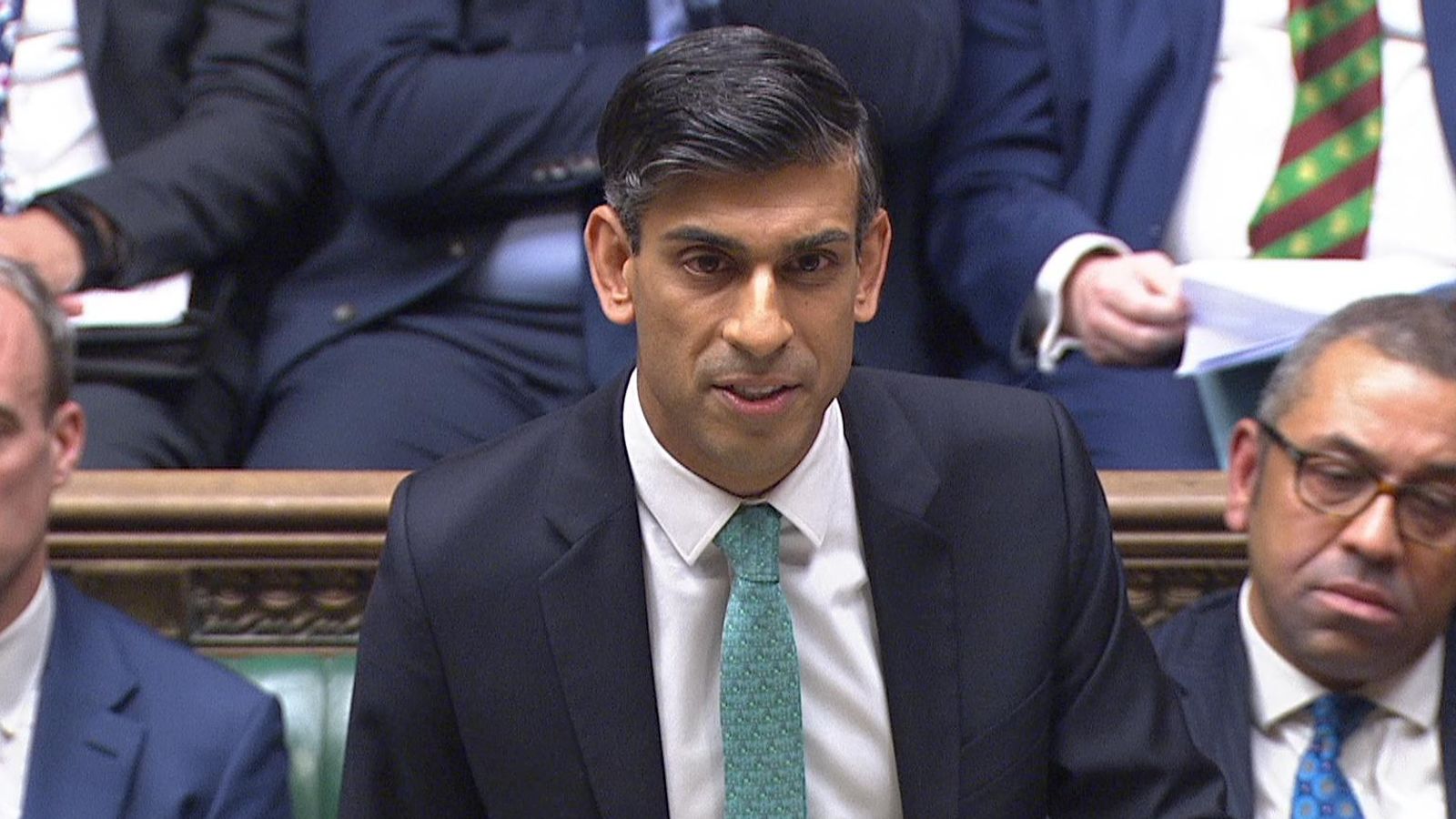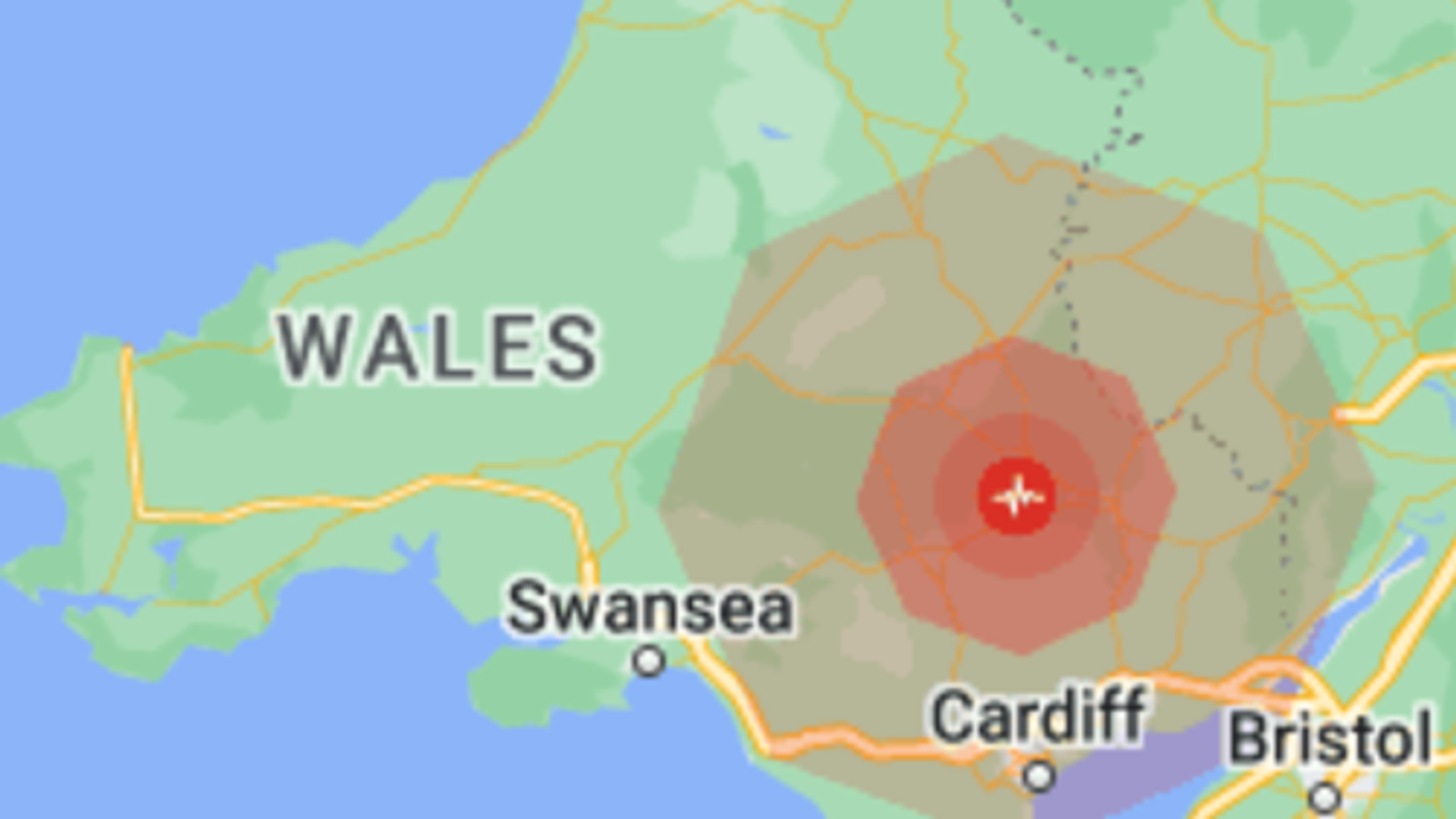The prime minister has unveiled a new five-point plan to tackle illegal immigration that specifically targets people arriving from Albania.
Rishi Sunak told the Commons on Tuesday that “enough is enough” and that the system is “not fair”.
More than 44,700 people have reached the UK by crossing the Channel in small boats this year, Sky News analysis shows.
PM promises to clear asylum seeker backlog – politics latest
Mr Sunak said that Albanians accounted for more than a third of arrivals in the first nine months of the year – or 33,000 – compared to 3% last year.
Last month, the government unveiled a series of joint measures with France to help monitor small boats crossings.
The prime minister said he hoped that together both sets of plans would help to clear the backlog in asylum claims by the end of next year.
What is the five-point plan?
1. Small boats command
A new permanent unified small boats operational command will be set up, combining military personnel, civilian capability and the National Crime Agency (NCA).
It will recruit 700 staff and the NCA will also get its funding doubled for tackling organised immigration crime in Europe.
Mr Sunak says policing of the Channel is “too fragmented” and the new command will enable staff to coordinate intelligence and enforcement better.
2. Focus on enforcement
The new command will allow immigration officers to focus solely on enforcement – increasing the capacity working on raiding illegal business premises by more than 50%, Mr Sunak says.
Data sharing with the relevant agencies will also be started again to crack down on migrants working illegally.
3. No more hotels
The government will stop using hotels to house asylum seekers as much as possible.
Disused holiday parks, surplus military sites and empty university halls will be used instead – with space for 10,000 people already identified.
Mr Sunak says this will cost half the amount of hotels.
4. More caseworkers
Numbers of asylum caseworkers will be doubled to triple productivity, Mr Sunak says.
Staff will be split by nationality and the application process will be “radically reengineered” with fewer interviews and paperwork to reduce the current backlog.
Mr Sunak says with more than 100,000 waiting for more than a year, he hopes it will have gone by the end of 2023.
5. Albania deemed ‘safe country’
A “new agreement and approach” has been agreed with Albanian officials, including the prime minister.
It includes border force officers being embedded at Tirana airport for the first time to stop people trying to get to the UK illegally.
New guidance will be issued for caseworkers that Albania is a safe country, which will mean the “majority of claims” are rejected and thousands returned on “weekly flights” in the coming months until “all the Albanians in our backlogs have been removed”.
Some 400 new specialists will work on expediting Albanian applications “within weeks”.
The threshold for what is considered a modern slave will be increased to require “objective evidence – not just a suspicion”.
Read more:
Desperate Albanians plot escape to UK
Albanian border where people smugglers enter the EU
What else will happen next year – and what about Rwanda?
The prime minister also set out legal reforms on illegal immigration, which will be brought forward early next year.
He said this will include “legislation to make unambiguously clear that if you enter the UK illegally you should not be able to remain here” and will be “detained and returned to your home country or another safe country” as soon as possible.
Mr Sunak added that once legal challenges have played out in the courts, he plans to restart flying failed UK asylum seekers to Rwanda.
Click to subscribe to the Sky News Daily wherever you get your podcasts
The government’s “migration and economic development partnership” with the east African country was unveiled in April but has failed to relocate anyone so far due to legal challenges.
Mr Sunak says he also plans to crack down on “late or spurious” appeals and legal challenges to asylum decisions.
The new measures on Albanian migrants will be “put on a statutory footing” to avoid them being challenged in court.
Finally, Mr Sunak said that parliament would set asylum seeker quotas in coordination with local authorities to establish levels of capacity in each area.






